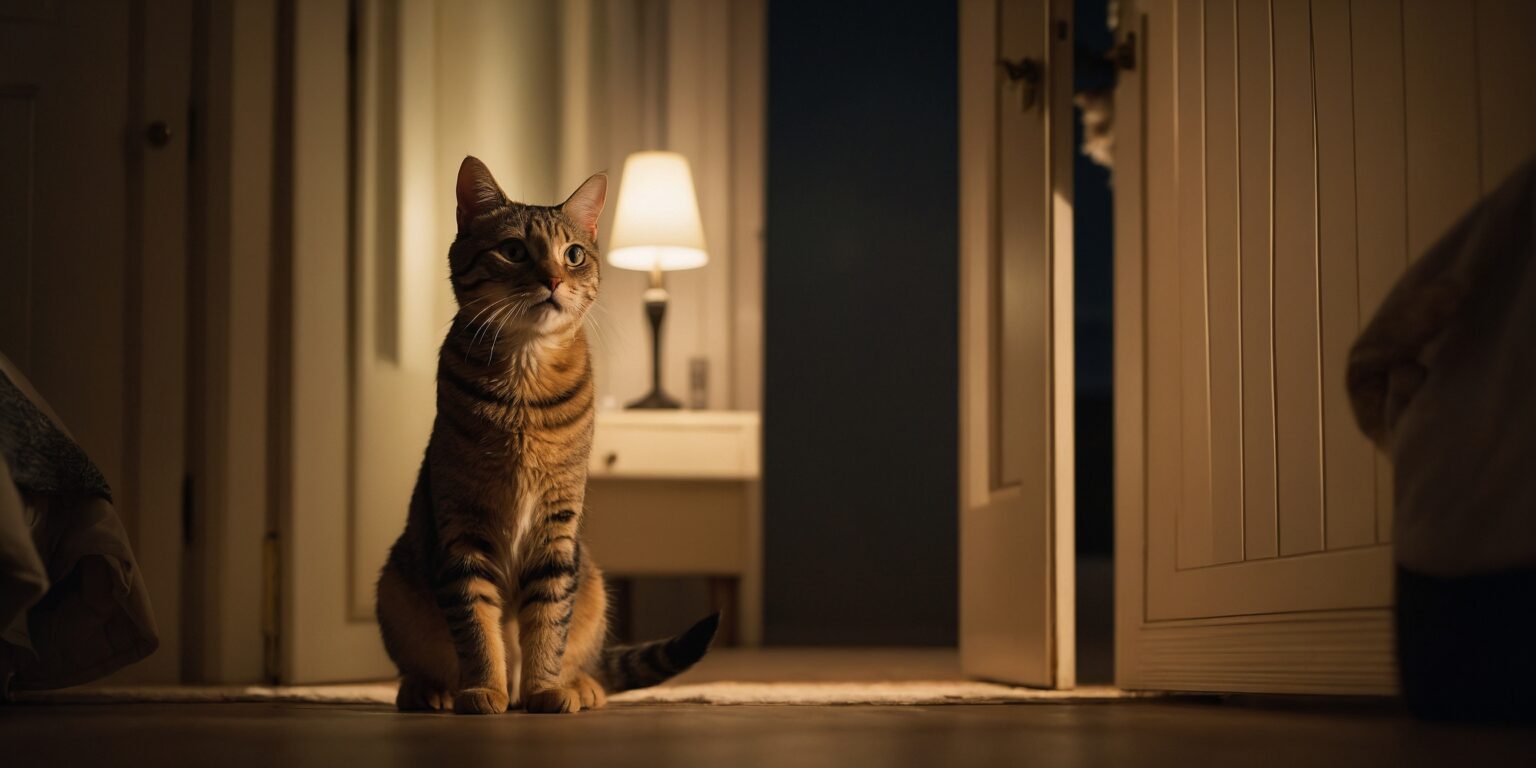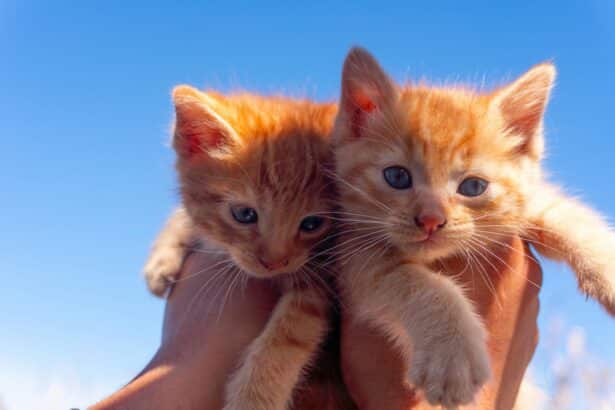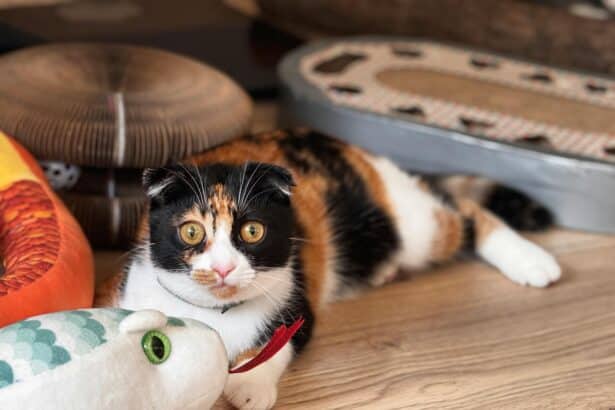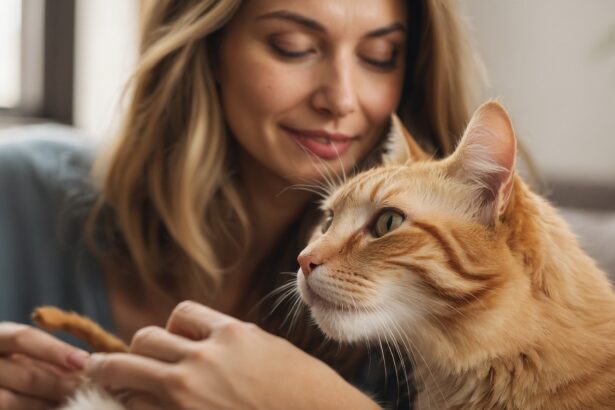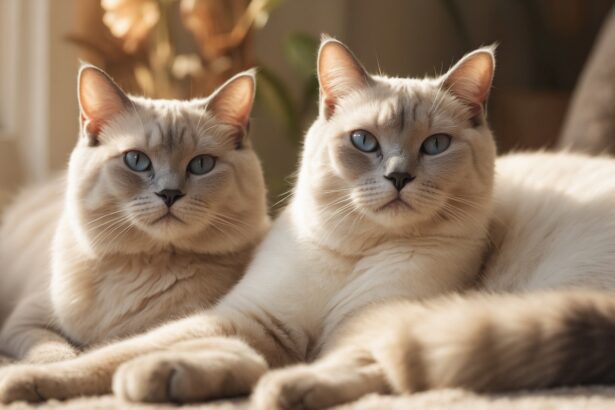Your peaceful sleep bubble meets a midnight chorus… courtesy of whiskers and a very opinionated meow. If your cat turns into a little night singer, she’s not trying to ruin your beauty rest—she’s communicating. Let’s decode the message and gently guide her back to dreamland.
- So, why the midnight serenade?
- Crepuscular by nature (and creatures of habit)
- Separation anxiety and “where did you go?”
- Medical issues can trigger night crying
- Hunger, thirst, and the empty bowl drama
- In heat or marking territory
- What actually helps (tonight and long term)
- When to call the vet
- Final purr of reassurance
- FAQ
So, why the midnight serenade?
Crepuscular by nature (and creatures of habit)
Cats are most active at dusk and dawn, which means nighttime zoomies and chatty meows are baked into their instincts. If evening play or feeding has become a routine, your cat may be reminding you it’s showtime.
That extra energy needs an outlet. Without it, some cats will develop stereotyped behaviors like repetitive pacing, overgrooming, or vocalizing to self-soothe.
Separation anxiety and “where did you go?”
Independent? Yes. But many cats form deep bonds and feel lonely when the house goes quiet. Night meowing can be your cat’s way of seeking reassurance, especially if you’re away during the day.
Watch for clinginess, overgrooming, or appetite changes—common signs of stress in cats. Calming routines and environmental enrichment can help your little shadow feel safe.
Medical issues can trigger night crying
Sudden or intense nocturnal meows can signal pain or discomfort: urinary issues, arthritis, hyperthyroidism, or hypertension are common culprits—especially in seniors.
If your cat seems restless, disoriented, drinks more, or uses the litter box frequently, schedule a vet check. For a broader overview, see common cat health problems and how to treat them.
Hunger, thirst, and the empty bowl drama
Some cats prefer several small meals and fresh water around the clock. An empty bowl at 3 a.m. can equal a loud opinion. Kittens and active adults may also burn through calories faster.
Consider slow-feeding, wet-food toppers for hydration, and a small, scheduled late-evening meal. More balanced feeding ideas here: our advice on feeding your cat.
In heat or marking territory
Unneutered cats often vocalize loudly at night to call mates or announce territory. You might also notice urine marking, especially near doors or windows.
Spaying/neutering helps reduce hormonal meows and unwanted marking. If your cat is already fixed but still pees outside the box, explore causes and fixes in why cats pee everywhere.
What actually helps (tonight and long term)
Your gentle bedtime plan
- Play like a hunter: 10–15 minutes of chase-and-pounce with a wand toy to burn energy.
- Then feed: Offer a small high-protein meal right after play to trigger that post-hunt snooze.
- Set the mood: Dim lights, white noise, and a warm, cozy bed in a quiet corner.
- Fresh essentials: Clean litter, fresh water, and a quick cuddle to say “all is safe.”
Original tip: Create a “sunset snack station.” Load a puzzle feeder with a few crunchies and set a timed feeder to open 60–90 minutes after you fall asleep. It gives your cat a quiet “mission” and prevents 3 a.m. wake-up calls.
Need more help reading her voice cues? Dive into understanding your cat’s meow to fine-tune your response.
Mistakes to avoid
- Feeding when they meow at 3 a.m.: It teaches your cat that meowing = buffet. Instead, schedule that small late meal and use puzzle feeders.
- Scolding or locking them out: Stress escalates meowing and can harm your bond. Calm, consistent routines work better.
- Skipping playtime: Energy with no outlet is the #1 driver of nighttime chatter.
A surprising fact
Adult cats rarely meow to other cats—meowing is mostly for us. They’ve fine-tuned a special “human language,” and yes, they know exactly which meow gets you out of bed.
When to call the vet
- Sudden changes in meowing, confusion, or disorientation at night.
- Increased thirst, urination, weight change, or accidents outside the litter box.
- Pain signs: hiding, stiffness, vocalizing when touched, or reduced jumping.
Trust your instincts—if your cat is “not herself,” a prompt check can bring relief fast.
Final purr of reassurance
Night meows are communication, not defiance. With a play–hunt–feed routine, smart feeding tools, and a stress-soothing environment, most cats drift back into quiet cuddles and long, happy naps.
FAQ
How do I stop my cat from meowing at night?
Play intensely before bed, feed a small protein-rich meal right after, refresh water and litter, and use a timed/puzzle feeder for a quiet night task.
Should I ignore my cat’s nighttime meowing?
Don’t reward meowing with food or play. Stay calm and consistent with scheduled routines; respond only after quiet moments to avoid reinforcing the behavior.
Could my cat be meowing at night due to stress or loneliness?
Yes. Add enrichment, cozy sleeping spots, and gentle routines. Spot red flags with these signs of stress in cats.
When is night meowing a medical concern?
When it’s new, intense, or paired with thirst, litter changes, weight shifts, or confusion. See common issues here: cat health problems.


